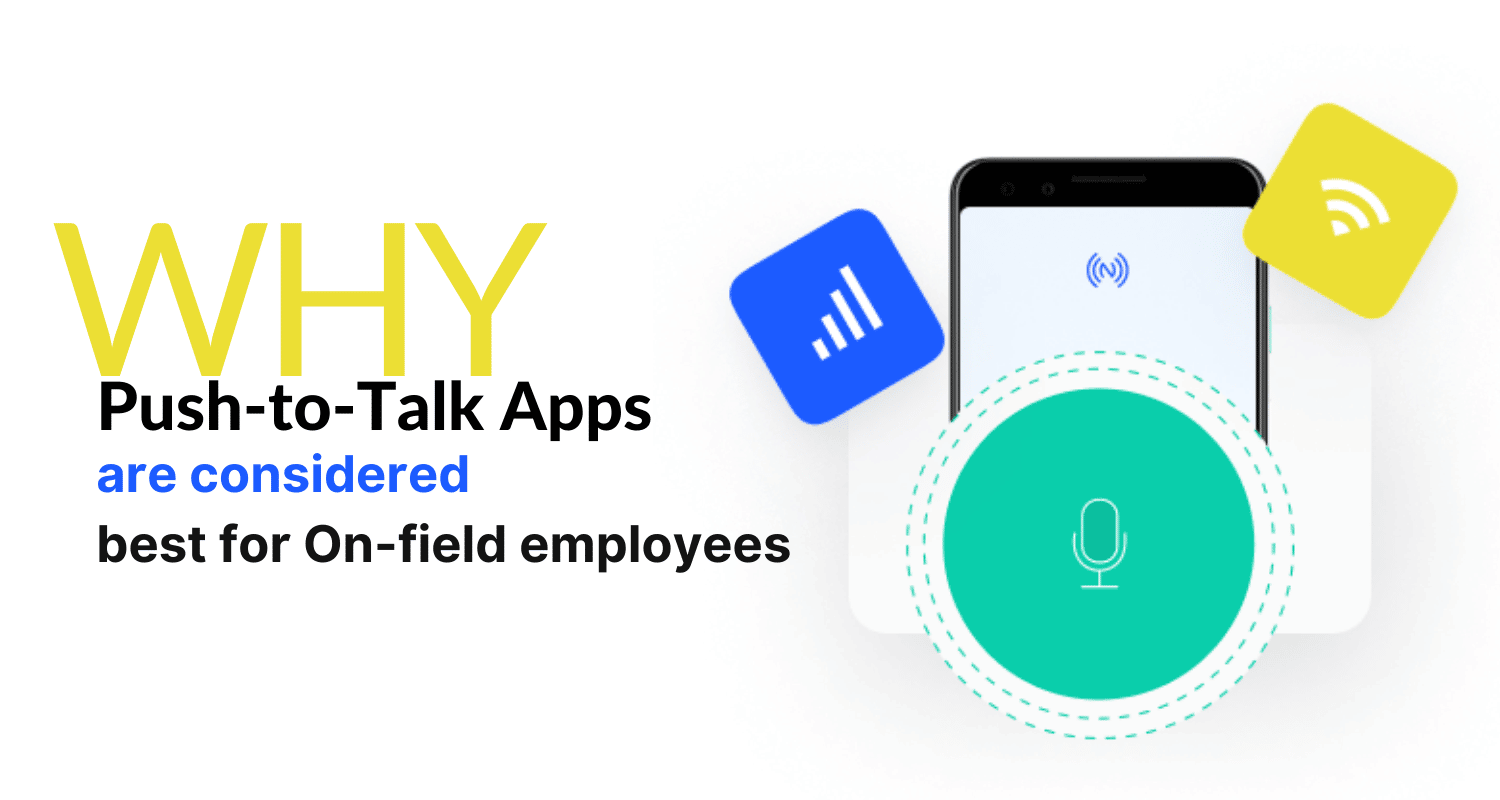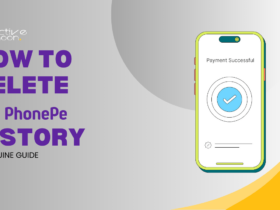Introduction
The on-field workers are the “real-face” of any company, as they directly interact with the customers, and thus, they play a significant role in establishing and maintaining the company’s brand value and overall reputation. Managing an on-field workforce is challenging and cumbersome. Modern-day walkie-talkie app and push-to-talk apps, which are essentially based on the push-to-talk concept, help tackle the challenges effectively.
Let’s take a deeper look, how!
The field force are people who are always on their toes, every time! They are usually en route, busy in deliveries, working at noisy construction sites, mines, factories, natural disaster sites, accident sites, or scattered away from each other, still operating, within huge premises like hospitals, hotels, etc. In short, they are on their toes every time!
The old-world methods of communication like waiting for someone to respond, waiting for the other end to pick calls, email correspondence, etc. will not work with on-field resources. For them to operate smoothly, the communication should be smoother, faster, and user-friendly. The introduction of Push-to-talk devices offered a prompt way of transmitting and receiving voice messages that helped the non-desk workers. Let’s explore more about Push-to-talk.
What is Push-To-Talk?
Push-to-talk is a mode of communication that is not new to the world of the field force. In simple words, Push-to-Talk or walkie-talkie is a two-way communication method where a person sends and receives messages by just pressing a button.
Traditionally, on-field workers used to carry heavy handheld land mobile radios or walkie-talkie devices at work. The workers could send voice messages by pressing a button on the dedicated device for the other end to listen and respond. Those devices were meant to provide instant communication but had limited functionalities. They were an added responsibility to the field force as they moved from one place to another.
On top of that, traditional Push-to-Talk or walkie-talkie devices could work within a limited range. Beyond that, they were not functional, and also the messages were not encrypted, which was a security issue.
Industries that Benefit the Most from Push-To-Talk
On-field force is the lifeline of certain industries because of the nature of work and industry requirements. They require instant communication strategies, without which their operations may get hampered. Push-to-Talk is widely used across various industries such as:
- Logistics and transport
- Manufacturing
- Healthcare
- Construction
- Disaster management and recovery
- Oil and gas industry
- Mining
- Agriculture
- Emergency departments
- Military
- Event management, and many more.
General Challenges faced by On-Field Workforce
The jobs carried by various on-field workers are exciting, but also very challenging in nature. A good and on-time communication and collaboration strategy like Push-to-Talk can help reduce the challenges faced by the on-field workforce as they feel connected, answerable, and in touch.
The general challenges faced by the on-field workforce are many but to list a few:
- The on-field workforce has to travel a lot
- Less communication among the team
- Work in a dynamic, sometimes harsh environment
- Do a lot of physical activity
- Chances of accidents and injuries are more when compared to the non-field workforce
- Employees feel isolated and unanswerable at times
- Absence of instant communication in times of emergency
Ahead of great challenges, lie great solutions! The challenges of on-field workers paved the way for better on-field communication and collaboration apps.
Let’s explore the evolving face of Push-to-talk technology – Push-to-talk apps.
Push-To-Talk Or Walkie Talkie Apps
Push-to-talk apps revolutionized the whole landscape for on-field communication.
The recent technological advancements developed smart PTT applications that can be installed on any mobile device, along with additional features. Also, the functionalities, now, are not limited to just sending and receiving messages. Modern-day PTT apps provide multi-device support which is beneficial across industries. These apps add value to the on-field workforce by helping them stay connected, managed, and engaged. Not only this, by leveraging extensive features, PTT or walkie-talkie apps can also track employees’ productivity and progress.
Let’s throw light on the exceptional benefits of PTT apps in the next section.
Benefits of Push-To-Talk Apps
Push-to-Talk apps are undoubtedly one of the best modes of communication for the on-field workforce today. It helps them stay connected, as they can send instant voice messages to their team or co-workers at a faster pace; send video messages and VoIP calls as per the need; and share files and important docs instantly, without having to worry about security. Apart from this, the latest PTT apps allow various other benefits, listed below.
The latest PTT apps offer:
- Improved employee engagement: The ultimate aim of PTT apps is to make the lives of on-field employees easier, much more in sync with the organization, and smarter. Employees feel engaged, understood, and well looked after as they have prompt support at hand.
- Instant message reception and transmission: Employees can leverage two-way communication by sending voice messages without consuming cellular plan minutes.
- Company-wide Group chats and meetings: The on-field workforce can communicate company-wide, collaborate with multiple resources, and thus deliver better work in less time!
- VoIP and video messages: On-field workers can easily do VoIP and video messages to connect, communicate, and collaborate. This helps enhance productivity and team health, overall.
- Live broadcasts and SOS feature: In case of emergencies, on-field workers can promptly send emergency alerts. For example, In case an on-field employee is stuck somewhere while en route delivery of a product, that employee can immediately push a message, send a video, and get the necessary support to resolve the issue. Also, the Live broadcast feature allows organization-wide updates, important announcements etc.
- Enhanced device compatibility: Latest PTT apps are compatible with Android devices, iOS devices, rugged devices, or custom-built devices. This helps the on-field workers as they don’t have to carry a heavy handheld device, apart from their mobile devices.
- Access corporate inventories: Latest PTT apps allow the on-field employees access to corporate directories. They can quickly obtain details of any employee, sync contacts, connect with company-wide co-workers, supervisors, and other resources. Leaders can keep a check on productivity by identifying which employees are active/inactive.
- Encrypted text messages: Modern PTT apps allow sending encrypted text messages which provide extra security, in case needed.
- Cost and time savior: PTT apps are cost savior as companies do not have to pay extra-cellular minutes, and can track the employees. Also, it saves time on both ends.
- Location tracking features: Advanced PTT apps help manage and monitor on-field employees in real-time. This helps the organization monitor and workforce. For example, If the device fleet is operating beyond the geofenced locations, the device can be monitored, and locked down for security reasons.
Closing Lines…
Push-to-talk apps help eliminate all the communication and collaboration barriers that on-field workers face. It adds value to the lives of on-field workers by helping them stay connected, managed, and engaged. Not only this, it helps manage, monitor, and track their productivity.
A software-based Push-To-Talk app, NuovoTeam, offers lightning-fast communications and replicates the walkie-talkie experience, but with enriched features and functionalities. It is compatible with Android phones, iPhones, and customized rugged devices.

















Leave a Reply